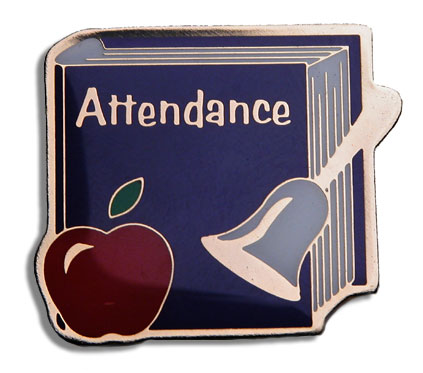Home-based Early Childhood Education
As an alternative to ECE in facilities such as a kindergarten, some parents prefer home-based ECE services, where their children are cared for and educated in a family home with a small number of other young children (5 or less), allowing for more personal attention and a more family-like atmosphere. Providers of such services can still be paid the ECE 20 hour per child funding, so long as they meet the government's criteria to have a licensed home-based ECE service.
Because the government is paying for these services, they have the right to set out certain criteria.
What Mr Hipkins and the Labour government have proposed is to review home-based early childhood education services, and investigate the introduction of minimum qualifications levels for these educators.
In the wording of all documents, announcements etc, it has been clear that they are referring to the providers of home-based ECE services, rather than to home educators in general (ie homeschoolers). Where the term "home-based educators" is used, it is within the context of a heading or section specifically stating it is about "the review of home-based early childhood education," such as on page 21 of this Cabinet document on the reviews being sought.
Wider Review
In so far as I have seen, there has been nothing whatsoever that indicates an intention to review home education policies. Home education/homeschooling is certainly not mentioned at all in the Cabinet proposal or any documents so far released.
Will This Labour-NZ First Government Bring Changes to Home Education?
- What criteria does the MoE use to assess home education applications?
- How many home education applications have been approved in the last 5 years?
- How many applications have been declined in the last 5 years?
- Why were they declined?
- How many home educated students have been directed to attend a registered school because they were not meeting the required standards in the last 5 years?
- What checks, if any, does the MoE make on the quality of education being provided for home educated students?
- What checks, if any, does the MoE make on the physical environment and safety of home educated students?
What we do know, though, is that so far our current government have not released any statements or information that indicate an intention to review home education. I believe that they have so many other aspects of education to focus on at present that they are unlikely to do so in the near future. Keep in mind that at around 0.7% of the total student population, home educators are, to the government's mind, small in number and therefore not all that important.
A new government which is seeking to consolidate it's position in its first term is unlikely to focus much time or resources on relatively insignificant matters.
Previously, less than favourable changes for home educators have been instigated by NZ First while in co-power, and of course we once again have NZ First in government together with Labour. However, the current Associate Minister for Education, Tracey Martin (NZ First), herself a former home educator, responded (as Deputy Leader and Education Spokesperson for NZ First) to the Home Education Foundation's request to each party for their position on home education in 2014 by saying:
"At this time the New Zealand First Manifesto is silent in the area of Home Schooling. The reason for this is that no member of the Home Schooling community approached us over the last three years to inform us of any difficulties or areas of concern/improvement. New Zealand First does not create policy without first having a relationship with those to be directly affected by that policy.
Having Home Schooled one of our sons for a period of time I have a working understanding of the current environment under which the parents and students you represent are working."
Nothing in their 2017 manifesto suggested any change.
As a sidenote of possible interest, Tracey Martin has written all the education policy for NZ First since 2008. She is currently one of three Associate Ministers of Education, so has certain areas of responsbility, one of the chief being Learning Support (Special Ed). THIS is a very interesting interview with her.
So Do We Just Relax?
HOWEVER, we do need to remain alert, informed, wise and responsive. Any government can make decisions that DO affect home educators. If we do not keep ourselves informed, and respond appropriately, we may miss the opportunity to take action to protect our rights and freedoms as home educating parents.
I recommend the following:
- READ the Cabinet paper on the current review so you know what the proposals and intentions are, HERE
- Be CONNECTED to other home educators in ways which increase the likelihood of you being informed of issues that arise. For example, joining NCHENZ (free) means you will receive a quarterly newsletter. You can also join their Facebook page. There are numerous NZ home ed Facebook groups - some general, and some special interest. And then there are regional support groups and networks.
- CHECK FACTS via a reliable source before reacting to an "issue" though - sometimes well meaning people misunderstand something and lots of speculation and worry can be rife unnecessarily.
- REMAIN AWARE of announcements, news articles and so forth related to education, and if you see something that could affect home education, then check the facts and discuss with experienced home educators. Let NCHENZ know if there is something of concern that needs to be investigated or addressed.
- SUPPORT the people who are proactively working to promote the interests of home educators. The NCHENZ committee, including myself, and Todd Roughton of Homeschooling NZ are some of the key ones who come to mind, along with those people within some regional groups who are liasing with the regional MoE offices. (More regional liaisons are needed - talk to me if you're interested!)
- PLAY YOUR PART by being aware of your rights and responsibilities as a home educator, and acting in a way that reflects well on the whole home education community. (More on this in a future post)
- STEP UP when called upon - if NCHENZ or another reliable home education source inform you of issues that need to be addressed and actions to take, please do your part.


 RSS Feed
RSS Feed
